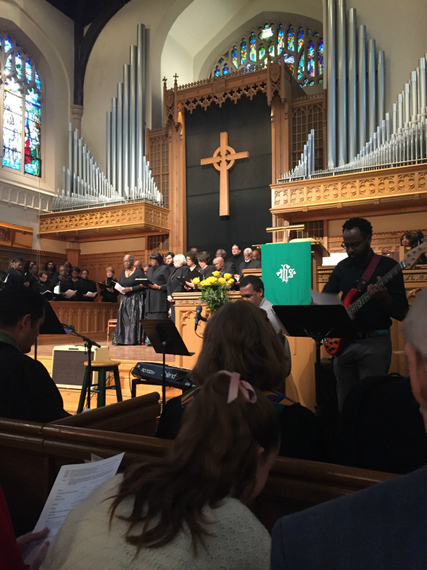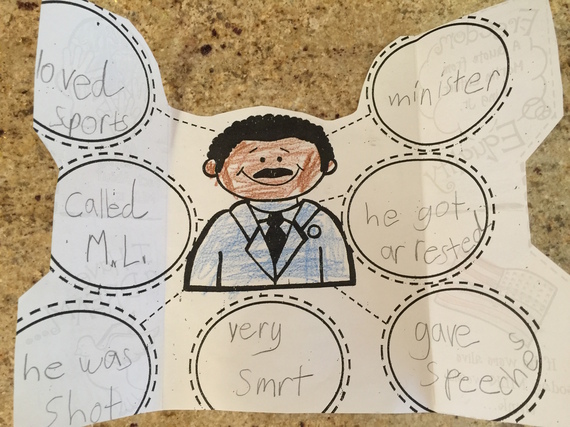MLK: Remembering the Day, Lessons for the Year
The January holiday has passed, and I wonder if you're still thinking about it.
As a parent, I am.
Last month, my family went to worship at a church we've started attending. While our actions were usual, our experience was not. It was the Sunday of Martin Luther King Day weekend. Our largely white Presbyterian church in New Jersey had combined with two black churches in town. While the town itself is diverse, coming together for worship is rare.
Searching for a seat amidst the crowded pews, I noticed our guests wore even dressier attire. They spoke with warmth, intellect, and pride. I had a sense they were going to share something special with us -- and it was for good reason.
Central Presbyterian Church, Summit, NJ
Song soon filled the walls. Not a stale hymn in which you can hear a sniffle in the back of the sanctuary, but passionate voices who revealed their hearts, dreams, and stories. The church was transformed into an emotive dance of praise set to drums, bass, and soul.
The sermon was equally moving, though in a prophetic way. The guest preacher made the comparison between knowing truth and acting on it; between describing oneself as religious and actually living righteously; between familiarity with the Bible and really loving the Lord. Reconciliation isn't something to just appreciate on the pages of the Bible or in the life of Dr. King, he said; it's also something to live everyday.
And yet, the gap between knowing and doing is real. This year my older son learned about Dr. King in school. As a first-grader, he studied racial inequality through the stories of Jackie Robinson (he really loves baseball) and Rosa Parks too. As much as he can summarize history, however, he is not yet equally adept at applying its truth to his everyday.
My son's school artwork
I question in the wake of the holiday, "How can I instruct my sons to further inclusion, kind words, fair chances, and the acknowledgment of latent prejudice?" The answer, I believe, has to do with connecting to that mission first myself.
Despite past inroads, the cry for racial reconciliation still sounds. Brutality, distrust, and prejudice abound in the news and in the observed and unobserved reaches of our communities. Mired in pain and confusion, many feel overwhelmed -- where do we begin? Some tireless roll up their sleeves and try. Others point fingers or walk away.
The reality is that we can't walk away. The cry for reconciliation isn't just for one people; we all need it. The effect of our splintered modern society is far-reaching. It's easy to feel the need for deeper connectivity as our society grows in isolation and individualism. The encouragement to recognize our connectedness to usher in healing is something that's not only relevant on a socio-political level, but on a deeply personal one too.
We can live too busy to repair lost relationships, address estranged ones, or really grieve those not forgotten. Could it be that in order to be agents of change, we also need to heal ourselves? Society will collectively benefit from every act of reconciliation.
Martin Luther King Day isn't just about what one man did at one point in history. Anyone can be a leader if they're willing to stand up. Anyone can work toward reconciliation in the sense that we are all hungry for it. Perhaps the first steps toward that larger goal are the simple actions that begin with each of us throughout the year.
As I think about how this impacts decisions in my own life, there are steps that we can take as parents to promote healing too. We can:
To finish reading this article and discover three practical steps to integrate into our parenting, please click here to head over to Huff Post Parents. Don't forget to "like" the article or comment while over there - thanks friends!


Comments
Post a Comment